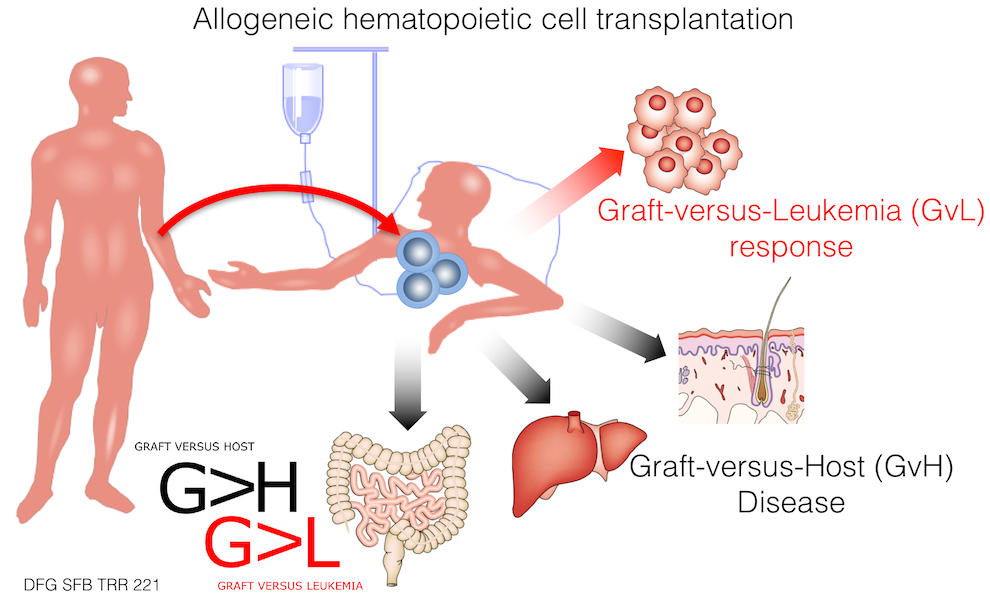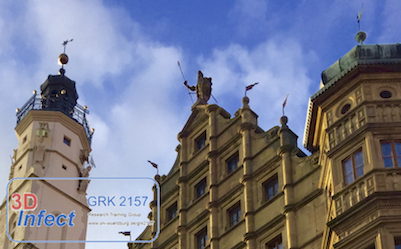GvH-GvL consortium kick-off meeting
On January 23rd principal investigators gathered for the inaugural meeting of the new DFG TRR221 collaborative research center on the modulation of graft-versus-host and graft-versus-leukemia immune responses after allogeneic stem cell transplantation in Regensburg.

Allogeneic hematopoietic cell transplantation is a curative treatment regimen for many patients with leukemia and lymphoma. The new TRR221 consortium connects research teams from the universities of Erlangen, Regensburg and Würzburg to address key challenges of allogeneic hematopoietic cell transplantation. The efficacy of this therapy is mediated by the graft-versus-leukemia (GvL) effect by immune cells of the stem cell donor. However, this desired GvL does not occur to the same degree in all patients to prevent leukemia or lymphoma recurrence after allogeneic hematopoietic cell transplantation. Furthermore, the new forming immune system of the donor can attack healthy organ compartments of the stem cell recipients, an unwanted and often life-threatening immune reaction termed graft-versus-host disease (GvHD). Within the first five years after transplantation, about 60 percent of patients die from GVHD or leukemia.
Our new interdisciplinary research consortium aims to develop innovative immunomodulatory strategies for specifically enhancing the GvL effect and for selective attenuation of GvHD. Our most recent meeting in Regensburg provided the opportunity to elect the board of the consortium, to define the key priorities for the near future, and, importantly, to exchange our most recent research results. A great start for an exciting opportunity to tackle together an unsolved medical problem and to help patients through a concerted research effort.








 From October 11th and 12th 2017 the annual international research conference organized by PhD students for PhD students of the
From October 11th and 12th 2017 the annual international research conference organized by PhD students for PhD students of the 
